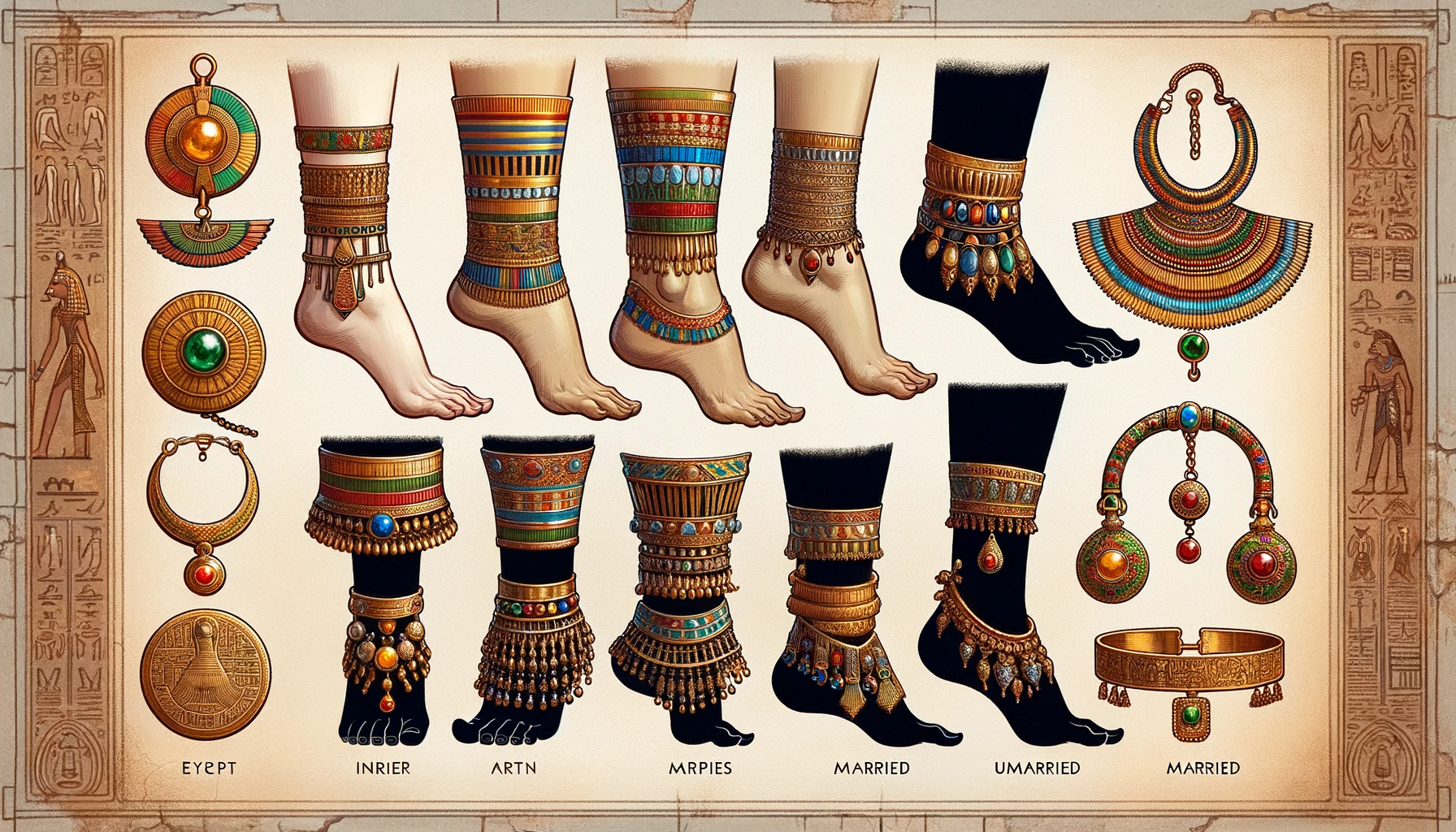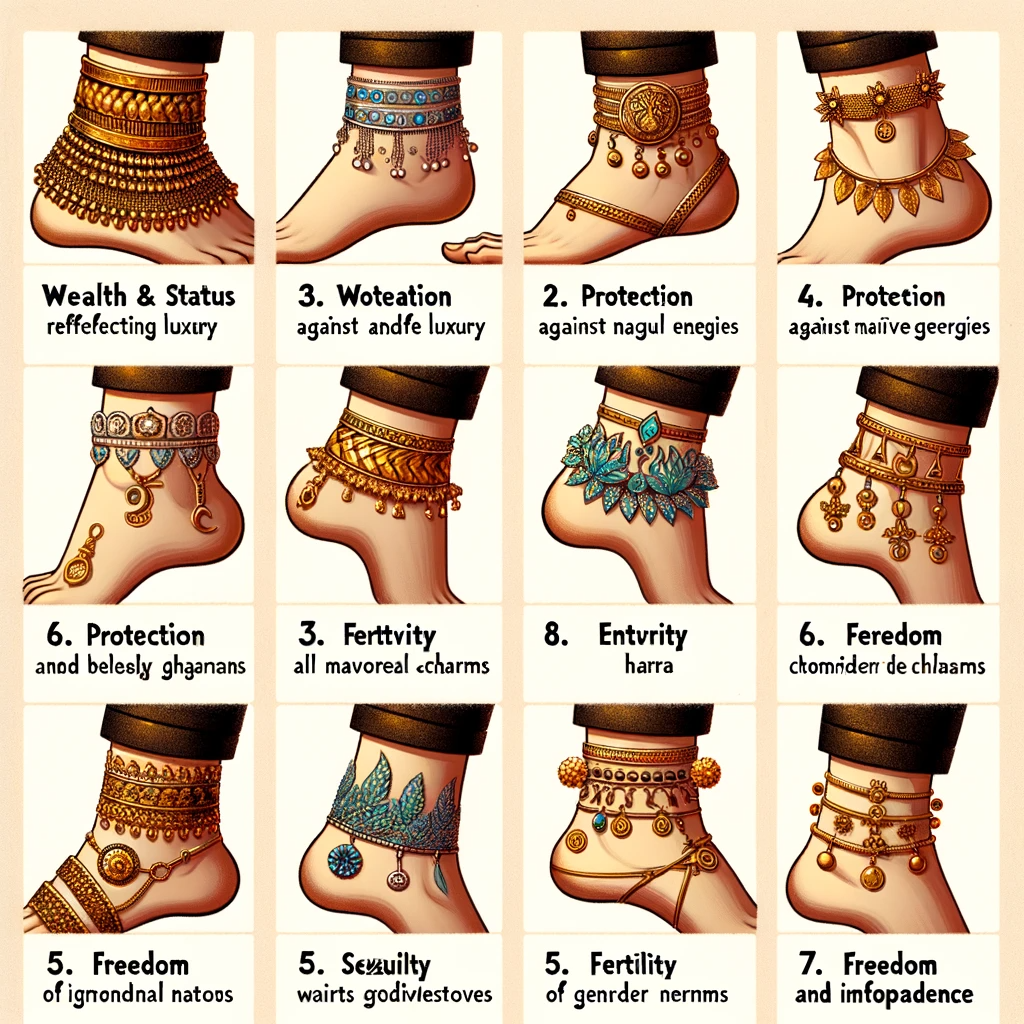What does an ankle bracelet mean
Ankle bracelets, more than just a fashion statement, carry a rich tapestry of meanings and symbolisms. With a history stretching back over 8,000 years, these adornments have been significant in various cultures around the globe. In this post, we unravel the diverse and often surprising meanings behind the humble ankle bracelet.
Historical Significance

Anklets date back to ancient civilizations, such as Egypt and India, where they were much more than decorative items. In ancient Egypt, for example, anklets made of precious metals and gems were worn by women of higher ranks, symbolizing affluence and status. Those from lower social classes wore simpler anklets, believed to bring good luck and fortune.
In Indian culture, anklets have traditionally been worn to signify marital status, with married women adorning anklets with charms, while unmarried women wore simpler versions. Anklets entered Western culture in the mid-1900s, initially associated with the bohemian, flower-power style of the 70s and have since evolved into a popular fashion accessory.
Symbolic Interpretations

- Wealth and Status: Historically, the material of the anklet often reflected the wearer's financial status. Gold anklets were favored by the affluent, while silver indicated a more modest economic standing. Today, they continue to be seen as symbols of luxury and sophistication.
- Protection: In many cultures, anklets are believed to offer protection against negative energies and bad luck, serving as amulets that bring positive vibes and create balance in one’s life.
- Fertility: In some African and Hindu cultures, anklets symbolize fertility and reproductive potential. They are often given as wedding gifts, representing blessings of good health and abundance.
- Charm and Beauty: Anklets enhance the wearer's charm and beauty, adding an attractive accessory to any outfit. They can be styled with other pieces of jewelry, creating a unique look that draws attention.
- Rejection of Gender Norms: Breaking traditional gender norms, men wearing anklets make a statement against societal expectations, embracing personal style and confidence in self-expression.
- Sexuality and Availability: In some cultures, the side on which an anklet is worn can signify marital status or availability. However, these meanings have evolved over time and are less prevalent in modern contexts.
- Freedom and Independence: Anklets have also symbolized freedom and independence, representing resilience, strength, and confidence. They remind wearers of their autonomy and self-determination.
Modern Interpretation and Personal Significance
In contemporary Western culture, the traditional symbolic meanings of ankle bracelets have largely diminished. Nowadays, they are primarily seen as fashion accessories without any prevalent underlying messages. The choice of which ankle to wear an anklet on is often a matter of personal preference or style, rather than cultural significance.
However, the beauty of jewelry like anklets lies in their ability to be imbued with personal meaning. Whether as a symbol of one’s journey, a cherished gift, or simply a favorite fashion statement, the significance of an ankle bracelet can be as unique as the individual wearing it.
Conclusion
Ankle bracelets, rich in history and diverse in meaning, have evolved from cultural symbols to stylish accessories. While some traditional symbolisms still persist in certain cultures, in the modern world, they offer a canvas for personal expression and style. Whether worn for their historical significance, for their beauty, or simply as a personal favorite, ankle bracelets continue to enchant and adorn.
